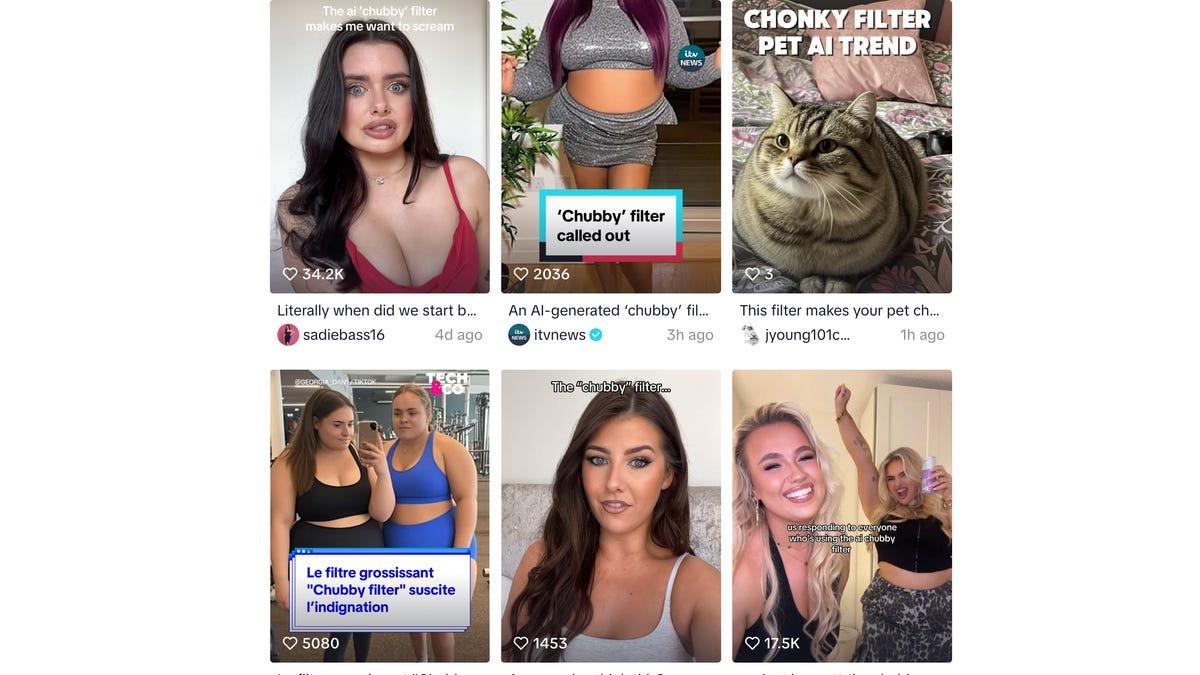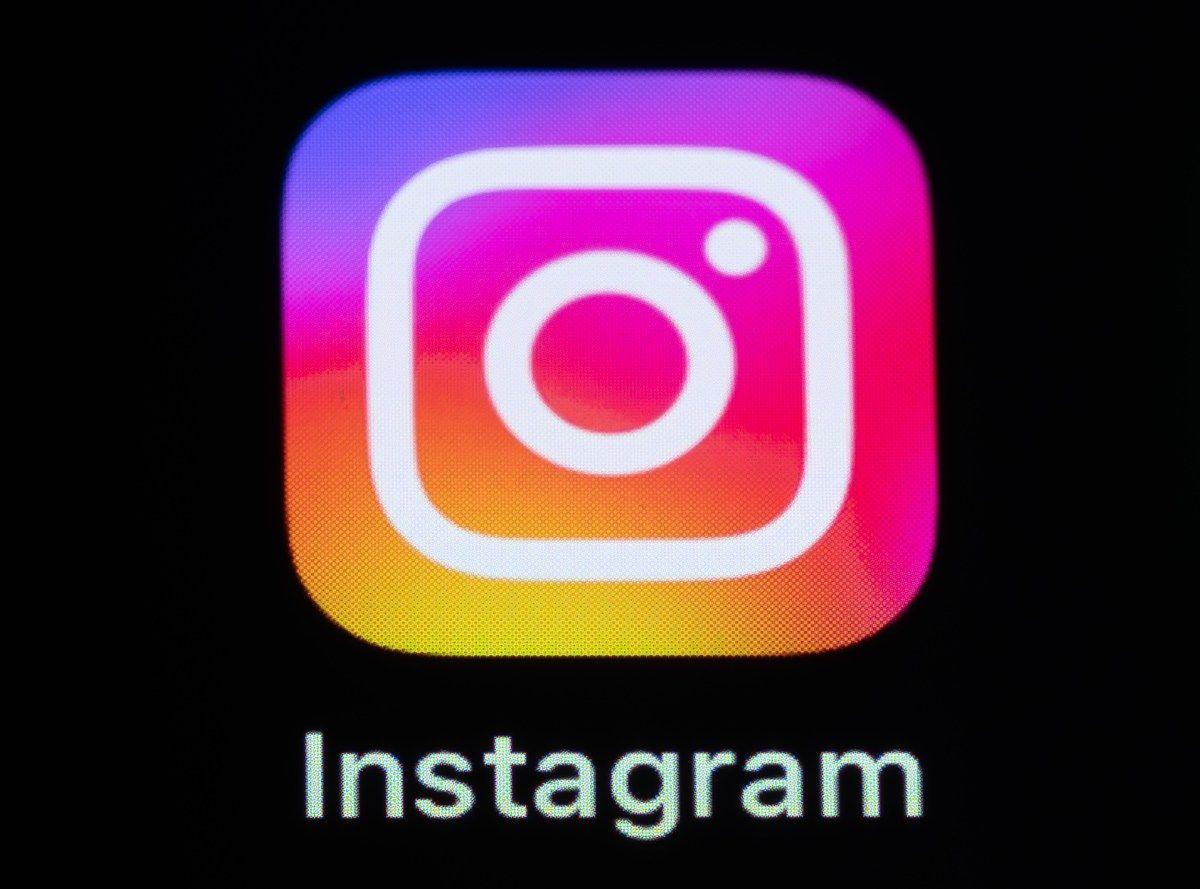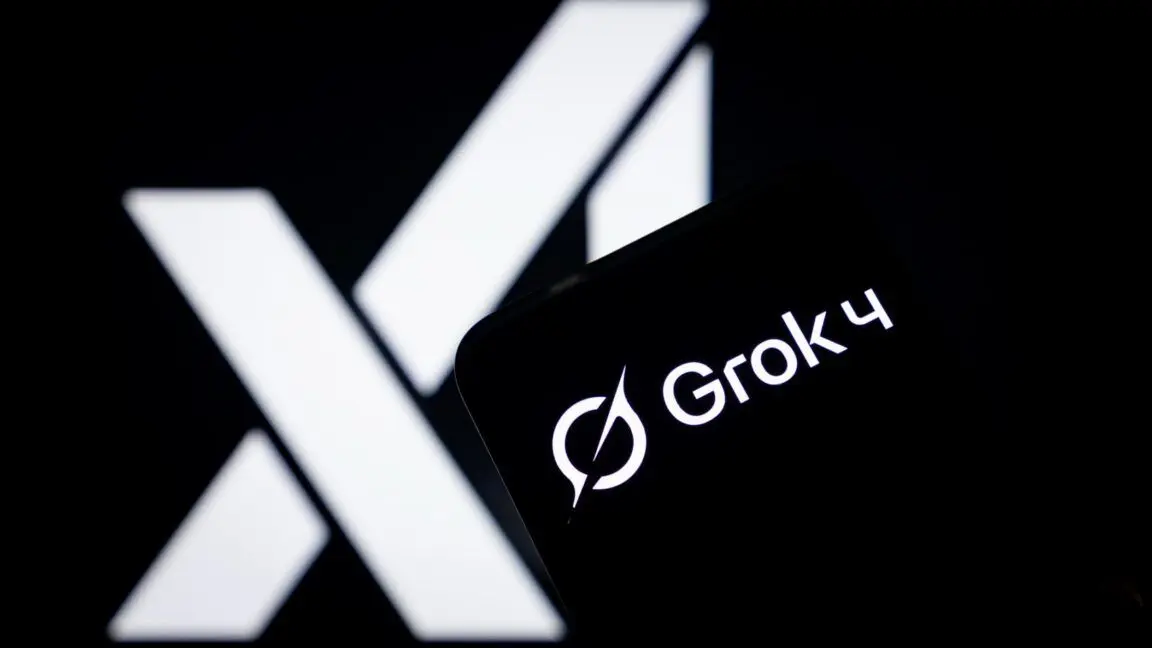TikTok to Ban Beauty Filters for Teens Amid Mental Health Concerns
3 Sources
3 Sources
[1]
TikTok Will Ban Teenagers From Using Beauty Filters
TikTok will ban teenagers from using beauty filters amid concerns about the dangerous impact on younger users' mental health. In a press release, TikTok announced that it would restrict the use of some beauty filters that allow them to change their facial features for users under the age of 18. Some of the changes will include preventing under-18s from using certain appearance-altering effects and expanding filter descriptions to specify what they adjust when applied. The restrictions will apply to TikTok beauty filters -- such as "Bold Glamor" -- that alter a person's appearance in a way that makeup cannot. Meanwhile, comic filters that are "designed to be obvious and funny" such as animal ear effects like bunny ears or dog noses will be unaffected by the restrictions. Dr Nikki Soo, TikTok's Safety and Well-being Public Policy Lead for Europe tells The Verge that the age restrictions for appearance-altering effects will be rolled out globally. The changes are being introduced in response to TikTok's report with the children's online safety non-profit Internet Matters. The report found that "beautifying filters contributed to a distorted worldview in which perfected images are normalized" and can result in "significant social pressure" to "look a certain way online." Last year, the viral "Bold Glamor" filter left TikTok users shocked and concerned about how dangerously realistic it is. The AI-powered filter realistically airbrushes a person's face, chisels their jawline and cheekbones, plumps their lips, whitens their teeth, and darkens their eyes and eyebrows in real-time. In the press release, TikTok also announced it was tightening its systems to block users under 13 from the platform. The company is looking into new AI technologies that can detect accounts made by users who are under 13, which is the minimum age permitted to use the platform. TikTok says that users who have their accounts deleted will be able to appeal "if they think we've made a mistake," and that it removes around six million accounts globally each year that don't meet its minimum age requirements.
[2]
TikTok Reportedly Wants to Block Beauty Filters for Teens
Samantha Kelly is a freelance writer with a focus on consumer technology, AI, social media, Big Tech, emerging trends and how they impact our everyday lives. Her work has been featured on CNN, NBC, NPR, the BBC, Mashable and more. TikTok announced plans to block teen users in Europe from using beauty filters over growing concerns about the impact such tools can have on mental health, particularly among young users. During a safety forum held at its European headquarters in Dublin and later outlined in a blog post, the company said changes will impact filters that alter users' features, such as facial features. However, it will not include filters that add playful effects like dog ears or bunny ears, the company said. Instagram said in the blog post it was motivated to make the change after it commissioned research with UK-based not-for-profit organisation Internet Matters that found there was a clear distinction between effects designed to be funny, such as bunny ears, and those designed to alter appearances. "Specifically, teens and parents raised concerns about 'appearance' effects, including that those viewing the content might not realise it had been altered," wrote Christine Grahn, Instagram's head of public policy and government relations in Europe, in the blog post. The company said it will also provide more information about how certain effects might change their appearance, on top of its existing efforts to let users know when certain effects have been used. "By fostering a culture of authenticity, respect and support, we can create a digital world where everyone feels empowered to be their true self," Grahn said. It's unclear as of now if the change will be rolled out globally. The company did not immediately respond to a request for comment. The move comes as social media platforms have long faced criticism for how beauty filters can impact the mental health of teenagers. More recently, the American Psychological Association raised concerns over how newer developments like AI-generated photos and videos can pose health risks around body image and how it's sometimes hard for users to decipher between what's real and not. Many research groups have pushed for more regulation around these issues. TikTok's latest efforts also follow stricter regulations in the UK under the Online Safety Act, which mandates platforms take proactive measures to safeguard young users from harmful content. TikTok also announced plans to tighten restrictions around users under 13 joining the platform by implementing a trial using machine learning to detect if users are lying about their ages. "This technology will help detect accounts that may belong to someone under 13 so that a specially trained moderator can review the account and remove it if they believe someone doesn't meet our minimum age," Grahn said. "Like today, people will be able to appeal if they think we've made a mistake." The process of age verification remains complicated because there is no standard in place. Many platforms rely on self-reporting age and the act of requiring ID verification raises concerns about data security and accessibility for younger users. TikTok said it removes about 6 million accounts worldwide "because we believe that our minimum age requirement has not been met." The move to protect younger users also reflects an industry-wide shift amid rising concerns over child safety in digital spaces. Virtual gaming platform Roblox recently announced parental controls, allowing caregivers the ability to restrict or see how much time their child is spending on the site, and prohibit anyone under the age of 13 from sending private messages. Meanwhile, Instagram recently launched more tools for parents, including the ability to block access during specific times of the day, particularly at night time.
[3]
TikTok Announces Plan to Block Some Beauty Filters for Minors
"By fostering a culture of authenticity, respect and support, we can create a digital world where everyone feels empowered to be their true self," the company said. TikTok will soon block anyone under 18 years old from using filters on the social media platform that dramatically alter their facial features, according to a press release. Filters that alter a person's appearance in ways like giving fuller lips or larger eyes will no longer be accessible to minors but funny filters that add things like bunny ears will reportedly be acceptable. The change will be rolled out globally in the next few weeks, according to a TikTok press release, and stems from concerns about the mental health of minors on the internet. Kids who've used facial "beauty" features can report feelings of depression and anxiety about their appearance and there's growing concern about how social media may be altering the mental health of kids around the world. Questions emailed to TikTok about which filters specifically will be limited to adults did not receive a response, but the Guardian reports a filter like Bold Glamour will be unavailable to kids. The filter was introduced in early 2023 and became controversial for creating unrealistic beauty standards, according to NPR. Filters that only apply makeup but don't make what look like structural changes to a person's face will still be allowed for teens, according to the news outlet. The announcement is part of a crackdown on kids under the age of 13 using social media, which TikTok says it's trying to stop. The 1-billion-user social media platform has a minimum age requirement of 13, which is pretty standard in the U.S. for similar tech. The company has also announced a plan to utilize artificial intelligence to make sure kids under 13 aren't using TikTok. "This technology will help detect accounts that may belong to someone under 13 so that a specially trained moderator can review the account and remove it if they believe someone doesn't meet our minimum age," TikTok said in a statement. "Like today, people will be able to appeal if they think we've made a mistake." The changes come as the fate of TikTok still remains unclear in the U.S., as former and future president Donald Trump prepares to take office on Jan. 20, 2025. Trump had previously railed against TikTok's parent company ByteDance for being based in China, even going so far as to sign an executive order to force the company to divest or be banned in the U.S. But that order was challenged in court and dropped by the Biden administration before a new law banning the site was passed. Now, nobody knows what will happen since Trump himself has pulled a 180 and now supports TikTok being allowed to operate in the country. Trump insists it's all about competition with social media platforms like Facebook, but there's reasonable speculation it might have more to do with a Republican megadonor having a huge stake in ByteDance. It looks like we'll find out soon.
Share
Share
Copy Link
TikTok announces plans to restrict the use of appearance-altering filters for users under 18, citing concerns about mental health impacts and unrealistic beauty standards.

TikTok's New Policy on Beauty Filters for Teens
TikTok, the popular social media platform, has announced a significant change in its policy regarding the use of beauty filters by teenagers. In response to growing concerns about the impact of these filters on young users' mental health, TikTok will soon implement restrictions on certain appearance-altering effects for users under 18 years old
1
2
3
.The Scope of the Ban
The new policy will specifically target filters that dramatically alter facial features, such as those that change lip size, eye shape, or jawline structure. Notably, the "Bold Glamor" filter, which uses AI to realistically airbrush and enhance facial features, will be among those restricted
1
3
. However, filters designed for comedic purposes, such as those adding animal ears or noses, will remain accessible to all users1
2
.Motivation Behind the Change
TikTok's decision stems from research conducted in collaboration with Internet Matters, a children's online safety non-profit organization. The study revealed that beautifying filters contribute to a distorted worldview, normalizing perfected images and creating significant social pressure on young users to conform to certain beauty standards online
1
2
.Global Implementation and Additional Measures
Dr. Nikki Soo, TikTok's Safety and Well-being Public Policy Lead for Europe, confirmed that these age restrictions for appearance-altering effects will be rolled out globally
1
. In addition to the filter restrictions, TikTok plans to expand filter descriptions to specify what aspects of appearance they adjust when applied1
2
.Addressing Underage Users
TikTok is also strengthening its efforts to prevent users under 13 from accessing the platform. The company is exploring new AI technologies to detect and remove accounts created by underage users. TikTok reports removing approximately 6 million accounts annually that do not meet the minimum age requirement
1
2
3
.Related Stories
Industry-Wide Shift and Regulatory Pressure
TikTok's move reflects a broader trend in the social media industry to address concerns about child safety in digital spaces. Other platforms like Instagram and Roblox have recently introduced similar measures to protect younger users
2
. This shift is partly in response to stricter regulations, such as the UK's Online Safety Act, which mandates proactive measures to safeguard young users from harmful content2
.Challenges and Future Implications
While TikTok's initiative aims to promote authenticity and protect mental health, challenges remain in implementing age verification processes without compromising data security or accessibility. The effectiveness of these measures and their impact on user behavior will likely be closely monitored by both the industry and mental health professionals
2
3
.As social media platforms continue to navigate the complex landscape of user safety and content regulation, TikTok's approach to beauty filters may set a precedent for how digital platforms address the intersection of technology, mental health, and user well-being.
References
Summarized by
Navi
[1]
Related Stories
TikTok Removes Controversial AI 'Chubby Filter' Amid Body Shaming Concerns
22 Mar 2025•Technology

TikTok Bans #SkinnyTok Amid European Regulatory Pressure, Addressing Body Image Concerns
04 Jun 2025•Technology

Instagram Implements Mandatory Privacy Settings and Parental Controls for Teen Accounts
17 Sept 2024

Recent Highlights
1
ByteDance Faces Hollywood Backlash After Seedance 2.0 Creates Unauthorized Celebrity Deepfakes
Technology

2
Microsoft AI chief predicts artificial intelligence will automate most white-collar jobs in 18 months
Business and Economy

3
Google reports state-sponsored hackers exploit Gemini AI across all stages of cyberattacks
Technology





